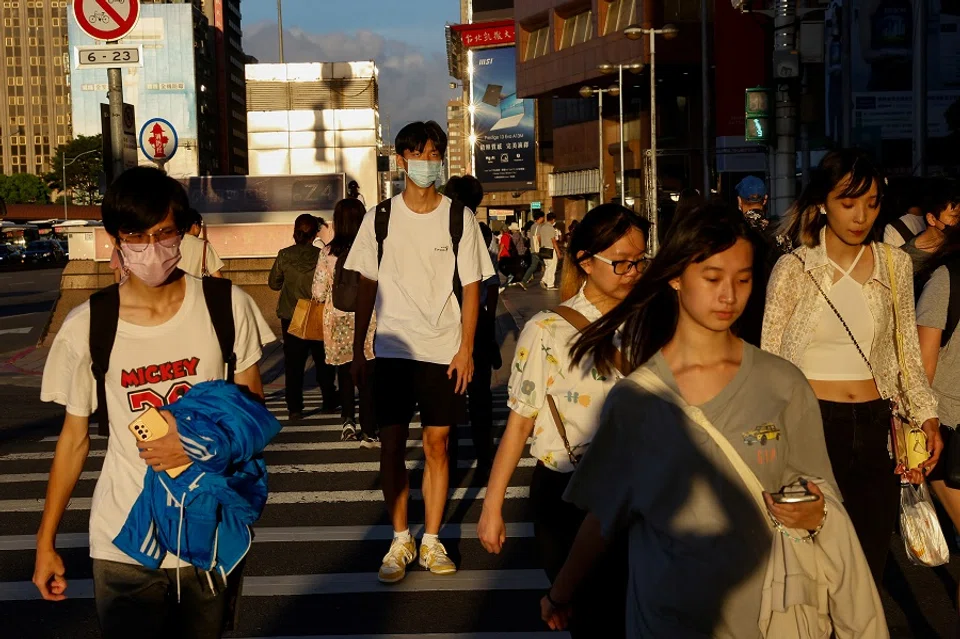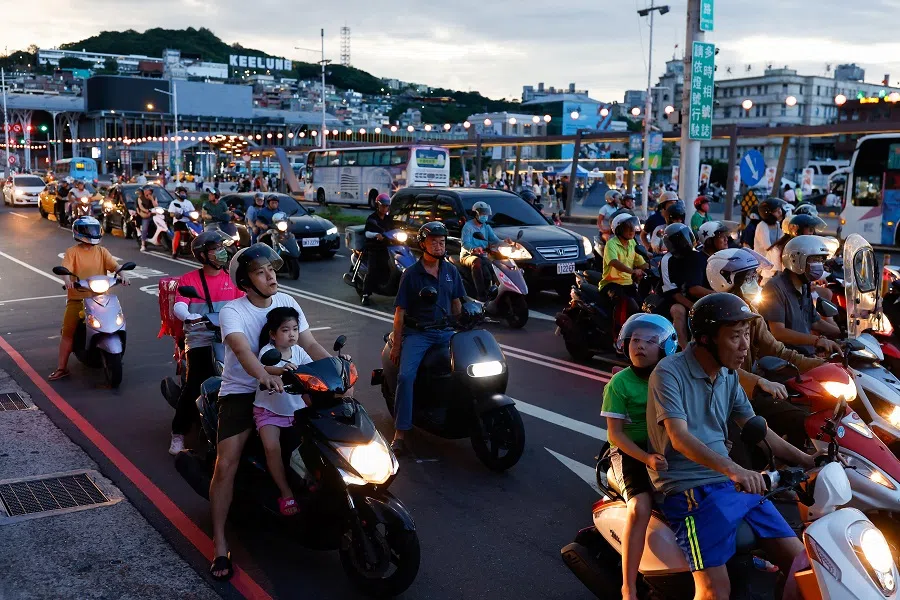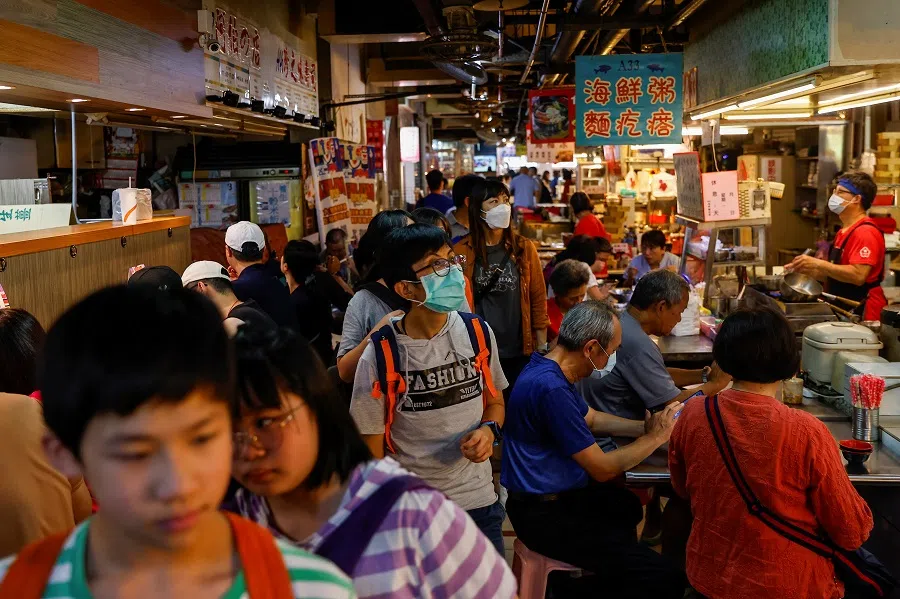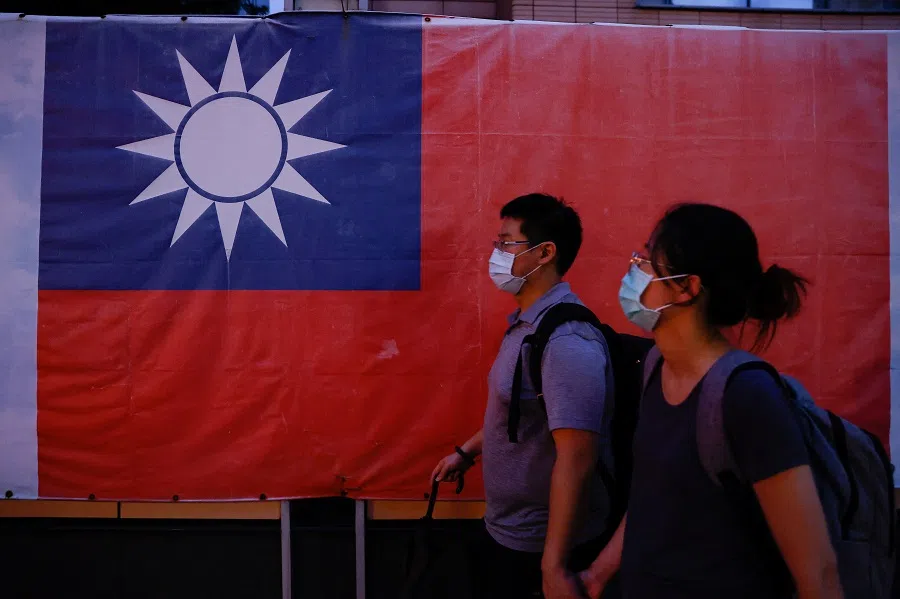Will cross-strait civilian exchange exit from long Covid?
While international tourism and study can be a bridge towards cross-strait understanding and reconciliation, it can sometimes be deployed as a geopolitical gambit. Taiwanese academic Ho Ming-sho shares more.

On 10 August, the People's Republic of China (PRC) lifted the ban on group tours to 78 countries and regions, but the list did not include Taiwan. Partly to assuage Taiwan's disappointed tourist business sector, Premier Chen Chien-jen reiterated the hope for normalising cross-strait tourism according to the principle of equity, and hinted that PRC visitors outside of the mainland would soon be allowed to come. At the moment, PRC citizens can only visit Taiwan with student, dependent and other special visas.
Not only that, the coming fall semester marks the fourth consecutive academic year after the PRC imposed restrictions on mainland students studying in Taiwan's higher education institutions in April 2020. Most mainland undergraduate students should have finished their four-year studies, and the remaining ones are those who have extended their undergraduate studies and those who have chosen to enter graduate school.
Taiwan's Straits Exchange Foundation has been urging its mainland counterpart to remove the ban as early as possible, whereas PRC's Taiwan Affairs Office has laid blame on the ruling Democratic Progressive Party (DPP)'s pro-independence stance.
... the authoritarian PRC can easily weaponise its students and tourists to pressure the Taiwan government.
Weaponising people-to-people exchanges
Cross-strait politics has long been an asymmetric game in which participants pursue different agendas. Taiwan prioritises its autonomy and security, but also has its eye on vast economic opportunities in the mainland, whereas the PRC authorities carefully use its resources to lure Taiwan into its gravitational pull.

As a democracy, Taiwan cannot prohibit its citizens from going to the mainland for study or tourism, but the authoritarian PRC can easily weaponise its students and tourists to pressure the Taiwan government.
Beijing has banned Chinese tourists from travelling independently to Taiwan since August 2019, citing "current cross-strait relations". This was later extended to a group travel ban as Taiwan also imposed a ban on mainland tourists independently entering Taiwan after the Wuhan lockdown in January 2020. On the other hand, the PRC never imposed restrictions on Taiwanese visitors entering the mainland throughout the Covid period.
As such, on top of a complicated game that involves many political and economic stakes, there is a rhetoric warfare in which both sides seek to avoid the blame for "hindering the beneficial development of cross-strait relationship".
On the surface, both sides claim that the intention is to move beyond Covid-era disruptions, but can the cross-strait civilian exchange really return to pre-pandemic normalcy? Furthermore, are more mainland students and tourists really an unmitigated benefit to Taiwan?
...the year 2016 marked the zenith of mainland students in Taiwan with 41,975 registered students and paid course students, and it quickly shrunk to a mere 3,143 in 2022.
Covid turned out to be politically expedient
First, it is more appropriate to use the pre-2016, rather than pre-Covid situation as a yardstick, since the cooling of cross-strait civilian exchanges took place in that year as the independence-leaning DPP took office.
As the DPP rejected the so-called 1992 Consensus, which claims that both Taiwan and the mainland belong to one China, the PRC decided to punish Taiwan by gradually restricting the student and tourist flow. In 2015, there were 4.18 million mainland tourists, representing 40% of the international visitors to Taiwan. Since the peak, the figure dwindled to 2.7 million or 23% in 2019. Similarly, the year 2016 marked the zenith of mainland students in Taiwan with 41,975 registered students and paid course students, and it quickly shrunk to a mere 3,143 in 2022.

These punitive measures strongly impacted the newly-installed DPP government at that time. For instance, in September 2016, thousands of tourist business workers took to the street to protest their dwindling revenue and income. In the November 2018 municipal election, Kuomintang's Han Kuo-yu was able to clinch Kaohsiung city, a traditional DPP bastion, partly because of his campaign pledge to bring back mainland tourists. In addition, Taiwan's private schools whose financing relied greatly on tuition also loudly complained about the diminishing number of mainland students.
Throughout President Tsai Ing-wen's first term (2016-2020), the declining number of mainland students and tourists has been a sore spot for the DPP and a constant talking point for the opposition party Kuomintang. Yet with the unexpected Covid outbreak coming in less than three weeks after Tsai secured her second term in a landslide victory in January 2020, the Taiwan government was the world's first to impose a travel ban from mainland China, and such a decisive move won popular endorsement at the time when the fear of coronavirus spread throughout the island. As the world's international travel ground to a standstill, Taiwan's tourist business shrunk accordingly and was no longer able to exercise its political pressure.
Taiwan managed to stand relatively unscathed for nearly three years when the civilian exchanges with the mainland were nearly reduced to zero.
Turning to Southeast Asia
Meanwhile, since taking office, Tsai's DPP government has unveiled and implemented a New Southbound Policy (NSP) to encourage civilian exchanges with Southeast Asian countries, ostensibly as a geopolitical strategy to lessen the dependency on mainland China.
By simplifying the application procedures and even offering visa-free treatment to some countries, Southeast Asian tourists surged, particularly from Vietnam, Indonesia and Thailand. In 2018, the number amounted to 2.4 million, trailing close behind that of mainland China. Countries covered in the NSP also sent more students to Taiwan. In 2011, there were only 18,426 students from these countries, but the figure climbed to 55,482, or 56% of Taiwan's international student intake in 2020.

The Covid pandemic has offered a precious opportunity for Taiwan to wean off its dependency on mainland China, which always came with a heavy political toll. Thanks to the largely successful disease control and stellar economic performance, Taiwan managed to stand relatively unscathed for nearly three years when the civilian exchanges with the mainland were nearly reduced to zero. In short, the post-Covid era gives Taiwan a clean slate to reconfigure its cross-strait exchanges with the PRC.
Taiwan's best survival strategy consists of maximising its soft power appeal for showcasing how open and inclusive a Chinese-dominant society can aspire to be, particularly towards mainland tourists and students.
While the Taiwan government has legitimate reasons regarding national security to remain cautious in every step of reopening, some concerns appear unnecessary. In early 2023, Taiwan resumed Hong Kongers' visits only after it had opened its borders to various countries. When the PRC continues to exercise control over its citizens travelling independently to Taiwan on an individual scheme, Taiwan should have allowed overseas PRC passport holders to enter since their travel cannot be unilaterally restricted by the mainland authorities.
While international tourism and study can be a bridge towards mutual understanding and reconciliation, it can sometimes be deployed as a geopolitical gambit. As a threatened democracy, Taiwan's best survival strategy consists of maximising its soft power appeal for showcasing how open and inclusive a Chinese-dominant society can aspire to be, particularly towards mainland tourists and students. How this goal can be achieved without compromising national security takes political wisdom among the island leadership.



![[Video] George Yeo: America’s deep pain — and why China won’t colonise](https://cassette.sphdigital.com.sg/image/thinkchina/15083e45d96c12390bdea6af2daf19fd9fcd875aa44a0f92796f34e3dad561cc)
![[Big read] When the Arctic opens, what happens to Singapore?](https://cassette.sphdigital.com.sg/image/thinkchina/da65edebca34645c711c55e83e9877109b3c53847ebb1305573974651df1d13a)
